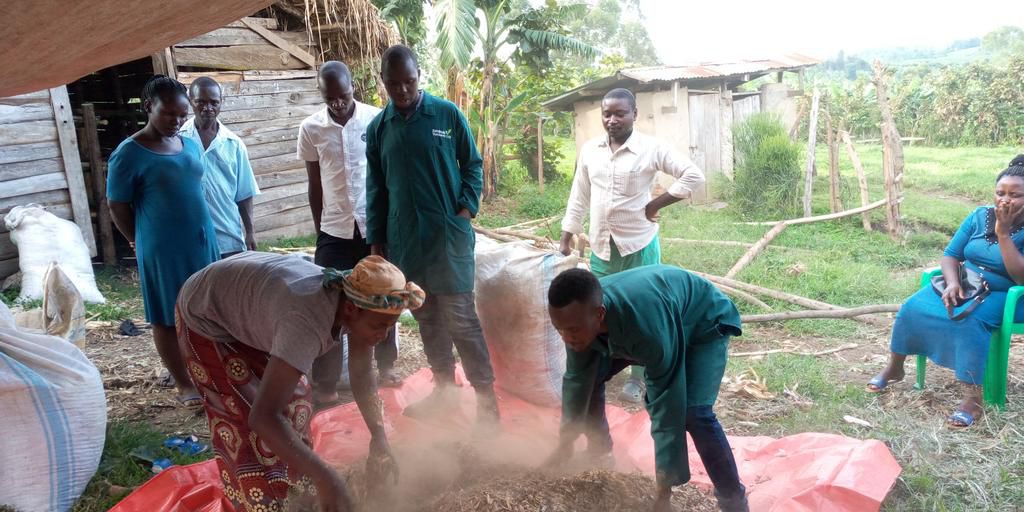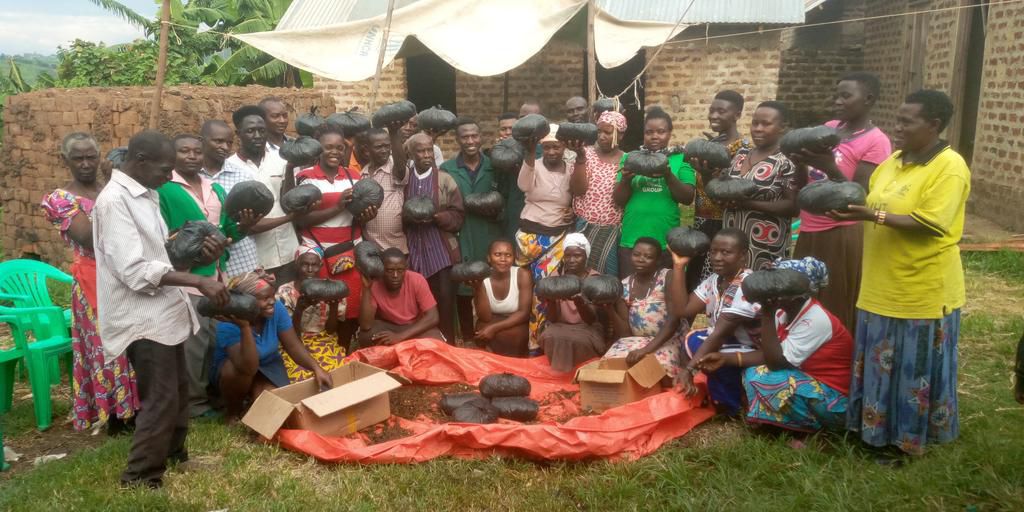Feature: Ndyabawe uses farming to empower small-holder farmers in Kamwenge
)
The 28-year-old graduate of journalism and communication says he had, while at university, written a lot of stories about farmers in his community in Kamwenge district, detailing some of the challenges they were facing at the time.
Unlike his fellow university graduates, Ndyabawe chose a path few thought he would take.
He chose to go into active farming, drawing inspiration from the need to change the lives of farmers in his community who were bogged down with quite a number of challenges.
"When I was still a student, I covered a lot of stories of farmers engaged in subsistence farming in my community in Kamwenge district. I realised that they had a lot of challenges, as most of them were only earning from both maize and beans. Because of the information I had about changing people’s livelihoods and communities, I thought I could come up with an idea that would help them," he narrates.
He says he also drew inspiration from the Mastercard Foundation Scholars Program having been chosen as a beneficiary of the program at Makerere University.
"As Mastercard scholars, we were always encouraged to be changemakers in our society," he says.

Genesis
Born in Kampala but raised in Kamwenge district, Ndyabawe was raised in a family of five and grew up watching his mother do a lot of farming, something that he thinks could have played a part in developing his passion for agriculture.
While in his second year at university and during holidays, he came up with the idea of starting a project called Rabbits for Education. The aim of the project was to offer another alternative to farmers in his community, who he had seen get frustrated with maize and beans as farm produce.
This, he says, didn’t work because the project was abandoned when he went back to school.
Ndyabawe got an idea of how to improve the lives of people in his community by interacting with them. This, he says, helped him identify their needs, challenges, and worries.
"Our goal was not to completely change the farmers’ way of doing things but to offer them an alternative to what they are already doing. Alternatives such as mushroom farming would help them have some income as they wait for the harvest from maize and beans," he said.

Using mushroom farming to empower communities
"I got an idea from a friend about mushroom farming. It was this friend who trained me and encouraged me to start as soon as I could," Ndyabawe narrates.
According to him, the goal of the mushroom farming project is to empower local small-holder farmers in Kamwenge district.
"This venture is aimed at empowering small-holder farmers with an alternative agricultural activity other than the common maize and beans growing. We don’t want them to leave what they are doing completely, but they should have an alternative," he says.
He says he chose mushroom farming because it does not require a lot of effort to venture into.
"With mushroom farming, you don’t need a lot of time. The first three days, you need like three hours per day, and then after fourteen days, you start to irrigate in the morning and evening. You grow mushrooms using waste such as maize husks, among others," he says.
He adds: "The whole process till harvest is 21 days, which is a very short period of time. The process is easy and manageable, yet there is a lot of demand."
"We have been able to train quite a number of farmers. We were contracted to train beneficiaries of a project called Mushroom Hill in Kabarole district. Very soon, we are going to be training a group of farmers in Wakiso. In Kabarole district alone, 50 people have been trained in mushroom farming, and 25 of these have already ventured into mushroom farming."
As a graduate of journalism and communications, Ndyabawe says he has been able to use his skills to market his produce by creating online content and putting it out there through social media.
Challenges
Ndyabawe says that starting out, he faced challenges such as a lack of information, which pulled him back.
He says he also faces the challenge of people wanting to buy at a less price than required, which has at times stopped him from breaking even.
5–10 years from now
Nyabawe says his goal is to empower as many women as possible. He says he aims to have at least 500 women empowered economically through agriculture.
)
)
)
)
)
)